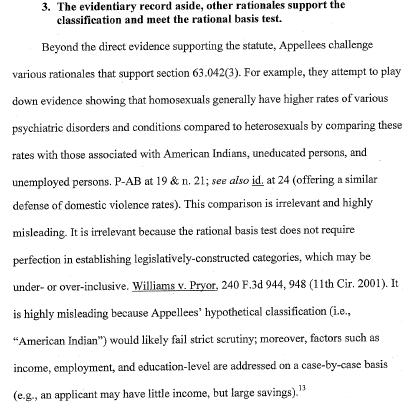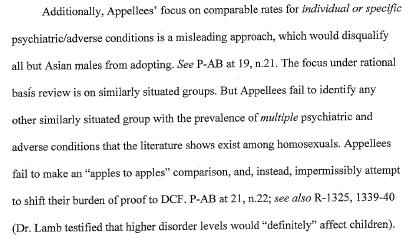[Author Jeff Sharlet (The Family) recently returned from Uganda where he conducted research for an upcoming book. While there, he interviewed most of the key promoters of Uganda’s Anti-Homosexuality Bill, including David Bahati and Julius Oyet. He also attended The Call Uganda and heard Lou Engle speak. After reading Lou Engle’s recent statement about The Call Uganda, Jeff sent along the following observations which he offers in this guest post. Jeff has some important information and perspective to report here.]
David Bahati: Lou Engle expressed support for the Anti-Homosexuality Bill
Jeff Sharlet
Either Lou Engle isn’t telling the whole truth, or some of his key allies in Uganda aren’t. I attended his rally in Kampala in the company of Member of Parliament David Bahati, the author of the bill. After the rally, I rode with Bishop Oyet and Bahati in Bahati’s car to the Sheraton hotel, where I interviewed Oyet for about 45 minutes, recorded. I’ll be writing about what I learned in Kampala in my forthcoming book, but Engle’s latest statement prompts some points worth making in the meantime:
1. Both Oyet and Bahati were ecstatic at what they perceived as Engle’s strong support of the bill. They felt his rally and his statements would be a turning point for the bill, reassuring their Ugandan allies that they had support abroad.
2. Both Oyet and Bahati told me that Engle had explicitly expressed his support for the bill, telling them that he had to lie to the Western media because gays control it. They said he said one thing to the BBC and then walked over to Bahati and said that he really supported the bill. Either Engle isn’t telling the whole truth, or Oyet and Bahati aren’t. I tend to believe Bahati here, since Engle didn’t mean anything to him until he met him that day. He hadn’t heard of him and decided to attend the rally only after I’d told him a few things about Engle. In other words, he left the rally thrilled with Engle based on that encounter with Engle alone. Clearly, Engle did something to please him.
3. I spoke with Engle briefly–also recorded–and he said the following: “To this nation the pastors, the leaders, they’ve said they don’t want that agenda but it’s coming in, getting pushed by NGOs, UN, Unicef and other organizations so we’re just trying to take a stand to encourage them in their stand.” That certainly sounds like he’s supporting the bill, which is the only Ugandan stand to which he could be referring.
4. Engle says in his statement last week that Christian leaders in Uganda are working to soften the punishments. But both Oyet and Bahati, at least, strongly support the death penalty. For Bahati, author of the bill, that goes without saying. It’s worth noting that Oyet is now formally working for Bahati – according to Oyet and Bahati, Bahati used his [Parliament] office to empower Oyet to gather signatures in support of the bill AS a government official.
5. Here’s Oyet on the death penalty: “There is not the death penalty at the end for everybody. There is the death penalty at the end for aggravated homosexuality.” He explained that the death penalty already applies for four crimes in Uganda (child rape, treason, murder, and causing death by female genital mutilation) “So I want the world to understand,” Oyet continued “that homosexuality is not the first death penalty in Uganda. I think that U.S. journalists should make that known. It is not the first one, it is going to be the fifth one.”
His rationale for the death penalty? “If the Bible supports the death penalty which is true and then you call yourself a Christian nation, listen. If I would be killed because I am dying scripturally I can repent to God before I am killed but [if] I am [eliminated] from the Earth that’s ok… if the victim confesses or repents, we can waive it off. Something like that…. In my view, homosexuals should be grateful. But instead they are not. Why I’m saying they should be grateful is because in Ugandan culture if you go and rob someone, if you go and rape a child and people find you, they will kill you.” [Here he is echoing a point made to me by many leaders of the anti-gay movement — that the bill is for the benefit of the gays in that it protects them from mob justice, replacing it with the rule of law and a death penalty they can appeal.]
6. Oyet seems to be quite confused about what homosexuality actually is. After he explained that he was engaged in spiritual warfare with homosexuality, I asked whether he believed homosexuals are demonically possessed.
Oyet: “Um, because it is abnormal. It is abnormal sex, you would say yes. You would say yes. Because one drives you to that. Because homosexuals, they would now eat their own feces. They would eat their own waste. That is what they call golden shower where you lick the anus of someone. Isn’t that demonic?” [For Warren’s more conservative readers: Yes, there are a few people, heterosexual and homosexual, who do such things, but they are A) not linked to sexual orientation; B) not harmful to anyone who minds their own business. Also, as one might guess, “golden shower” means something else.]
7. Last but not least: Oyet insisted that there are American church leaders who are supporting the bill privately but lying to the American media about it. When I asked why it was ok for them to lie, he said “I do not judge these kind of people.” True enough; he reserves his judgment for other people’s sex lives.
[End of guest post]
Although I [Throckmorton]have reasons for doubting David Bahati’s word on some matters (e.g., what the bill actually says), I can understand why Jeff thinks he is speaking accurately here. If not a deliberate effort to mislead and instead a misunderstanding based on terminology, it is an understandable one. Lou Engle says he supports “the stand” taken by the Ugandan leaders. “The stand” in Uganda means the Anti-Homosexuality Bill. However, Jeff is reporting something more than a misunderstanding. He is saying that the Bahati and Oyet – the men praised by Lou Engle – accused Engle of misleading the press.
I cannot know what the truth is but I would like Mr. Engle to speak clearly on this topic. Are Bahati and Oyet mistaken? Did they mislead Sharlet? Does Engle support the AHB? Does he support it with lesser penalties? Does he support the criminalization of homosexuality in Uganda? In the USA? Given Engle’s recent rise to prominence among religiously conservative political figures, these questions have important implications for American politics and policy.

